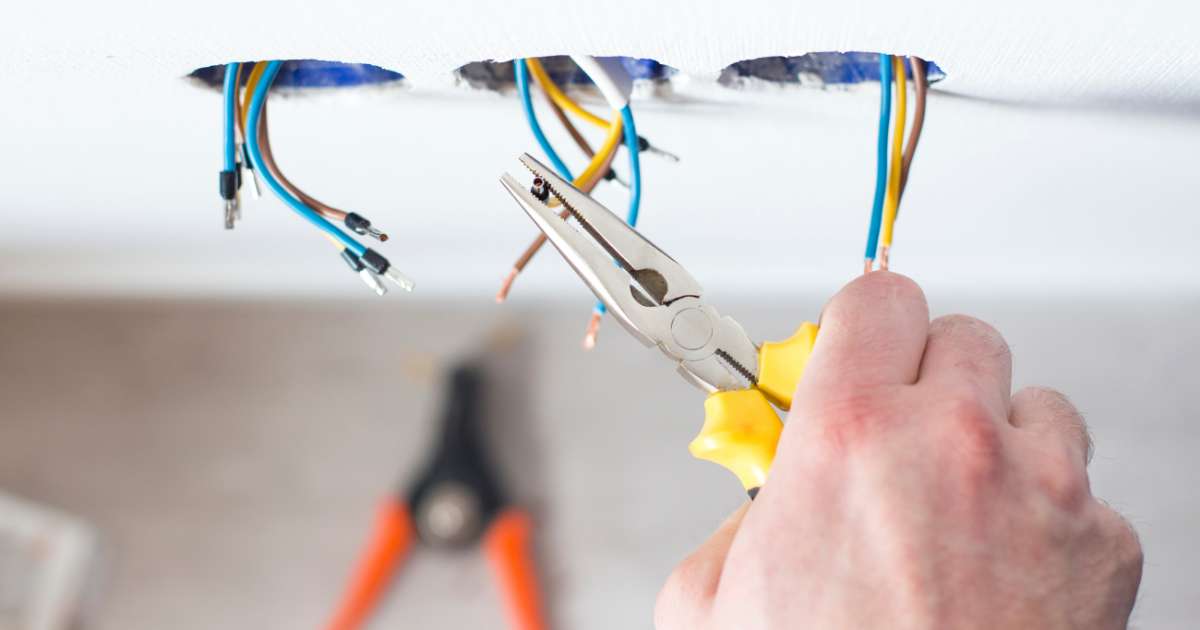If you’re selling a house, unpermitted work can reduce your home’s value, cause legal problems, and turn off buyers. However, if you take the right steps, selling a house with unpermitted work is something you can achieve.
This blog explains what unpermitted work is, how it impacts your sale, and a few of your options. Whether you decide to fix the problems yourself or make an “as is” sale, there are ways to find the right buyer.
What is unpermitted work?
Unpermitted work refers to construction or renovation projects that were done without getting the proper city permits. You typically need permits for home projects like:
- Putting in an addition like a new room.
- Major work with electrical or plumbing systems.
- Changing out your HVAC unit or water heater.
Permitting ensures that any work done on your house is done safely, correctly, and in accordance with local laws.
- Safety problems: Incorrectly done electrical work or a poorly built staircase could put home occupants at risk.
- Fines: Homeowners in Dallas and other North Texas cities can be fined for unpermitted work.
- Insurance issues: Insurance companies might not cover damage caused by unpermitted work. In some cases, they may refuse to cover your house at all.
Permitted work ensures that the property meets local land use, construction, and zoning regulations. Without permits, a homeowner might install unsafe electrical wiring, build an addition too close to a property line, or make changes that violate historical preservation rules.
Unpermitted work might affect home value, leading to fewer or no offers. You also run the risk of legal consequences if unpermitted work affects someone else, such as a fence that crosses a neighbor’s property line.

Understanding code violations
The City of Dallas maintains a webpage with local code information. Nearby counties and communities like Irving and Mesquite offer online resources as well.
Many local building codes are based on model building codes like the 2021 International Residential Code and the 2020 National Electric Code. Many places in the US, including Dallas and surrounding North Texas cities, use these as a basis for city guidelines.
Building codes change over time. For example, guidelines around rail height on a second-story deck might change, putting older construction in violation. In some cases, older work can be “grandfathered in,” or allowed to remain in place without repair because the work used to be up to code. If the work was never permitted, it’s harder to grandfather it in.
Homeowners associations (HOAs), or property owners associations (POAs) as they are called in Texas, have the ability to set rules for homeowners as well. POAs can require a certain range of exterior paint colors, set guidelines around flagpole installation, and make other rules. Work that breaks POA rules can put homeowners in the same bind as municipal code violations.
Common unpermitted work and code violations
Here are some common code violations that can stem from unpermitted work in the DFW area:
- Building an unsafe home addition such as a room or a second-story deck
- Improper electrical, plumbing, and HVAC work
- An improperly done re-roofing job
- A fence that inadvertently crosses a property line
- Renovations that transform historic homes
Is it legal to sell a house with unpermitted work?
Yes, it is legal to sell a house with unpermitted work in Texas, but you need to disclose this to the buyer. Failure to do so can result in legal action.
How unpermitted work can affect your home sale
Unpermitted work can make your property less attractive to buyers. They have the responsibility of fixing it, and it can cause issues during inspections and appraisals.
Unpermitted work can affect your home insurance as well. Dallas is prone to high winds, hail, and occasional tornadoes. If a hailstorm damages an unpermitted roof, there is a chance that insurance will deny your claim. In some cases of unpermitted work, insurers may cancel your coverage altogether.
What are your options if you’re selling a house with unpermitted work?
If you’re selling a house with unpermitted work, you have 3 main options:
- Fix the issue and get permits: If the problem is minor, such as replacing a non-compliant light fixture, this can be an easy fix. Unpermitted work on a house’s foundation can be more costly to repair. If you choose to fix the issue, you can apply for a retroactive permit. A building inspector will review the work and either approve it or ask for repairs.
- Sell the house “as is”: If you sell your house “as is,” you still have to disclose the issue. There is a chance you will find a willing buyer, especially if the code violation is minor. Certain off-market buyers, such as house flippers and companies like We Buy Ugly Houses®, may not be bothered by code violations.
- Credit the buyer: You can also credit the buyer at closing. That way, they can have the issue resolved by their own contractors and on their own terms.
Common mistakes when selling a house with unpermitted work
Here are some mistakes around unpermitted work you will want to avoid:
- Failing to disclose unpermitted work to buyers: This can cause significant legal problems with the buyer.
- Ignoring the risks of unpermitted work during the sales process: If you are making repairs or renovations while your house is on the market, make it a point to get permits. You’ll have to disclose the work to the buyer anyway.
- Underestimating the cost of unpermitted work before listing: Unpermitted plumbing work in a master bath can lead to other costly issues, such as foundation repair or mold abatement. Remedying the problem may not be cheap or easy.
- Not getting professional advice when needed: There are some scenarios where unpermitted work won’t be a big deal, and others where it could have a serious impact on your house sale. Getting expert opinions from contractors, specialists, and real estate professionals is a wise move.
We Buy Ugly Houses® buys properties with unpermitted work.
If your house has unpermitted work, give We Buy Ugly Houses® a shout. Our Dallas team buys houses “as is,” even when major code violations exist. You won’t need to make repairs, much less pull residential permits.
Don’t let building code violations keep you from making a sale. Sell your Dallas house with We Buy Ugly Houses!
This blog is for informational purposes only and should not be considered legal advice.











